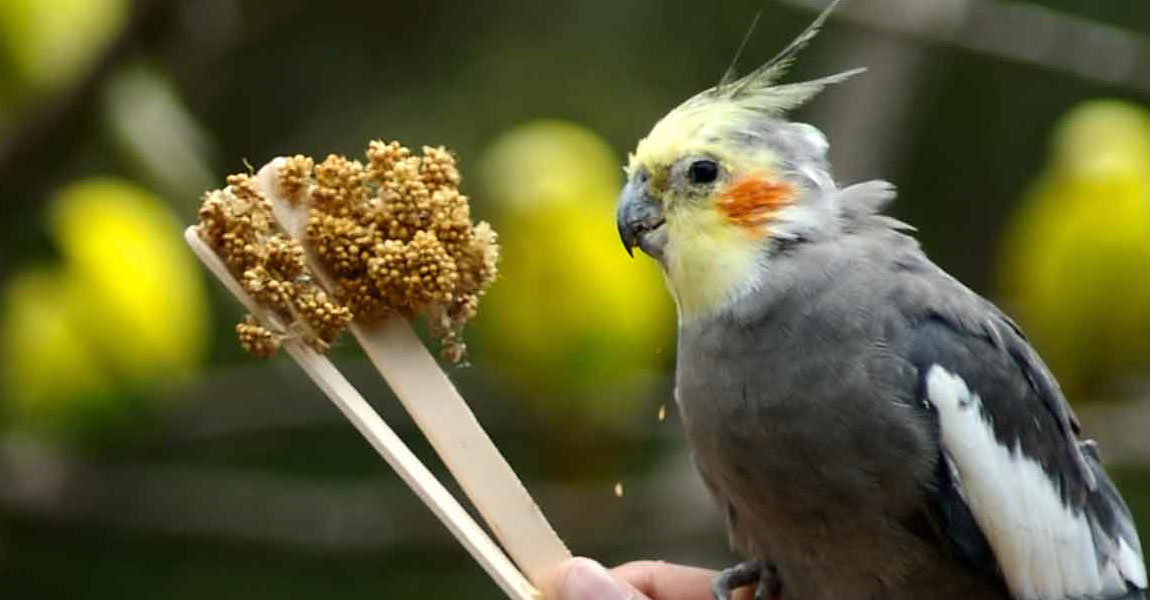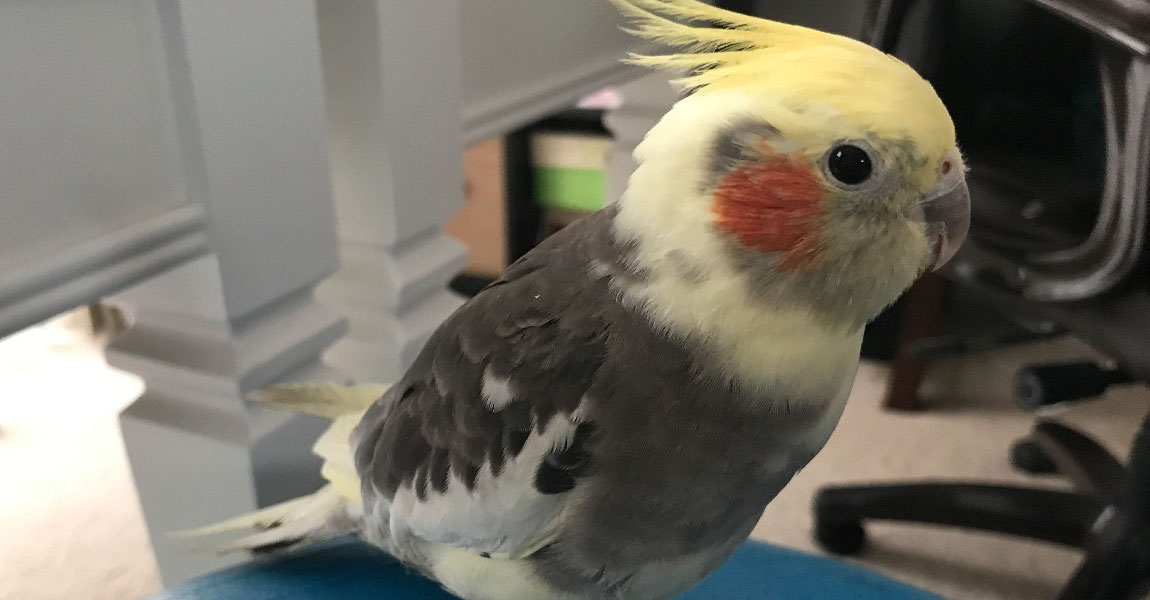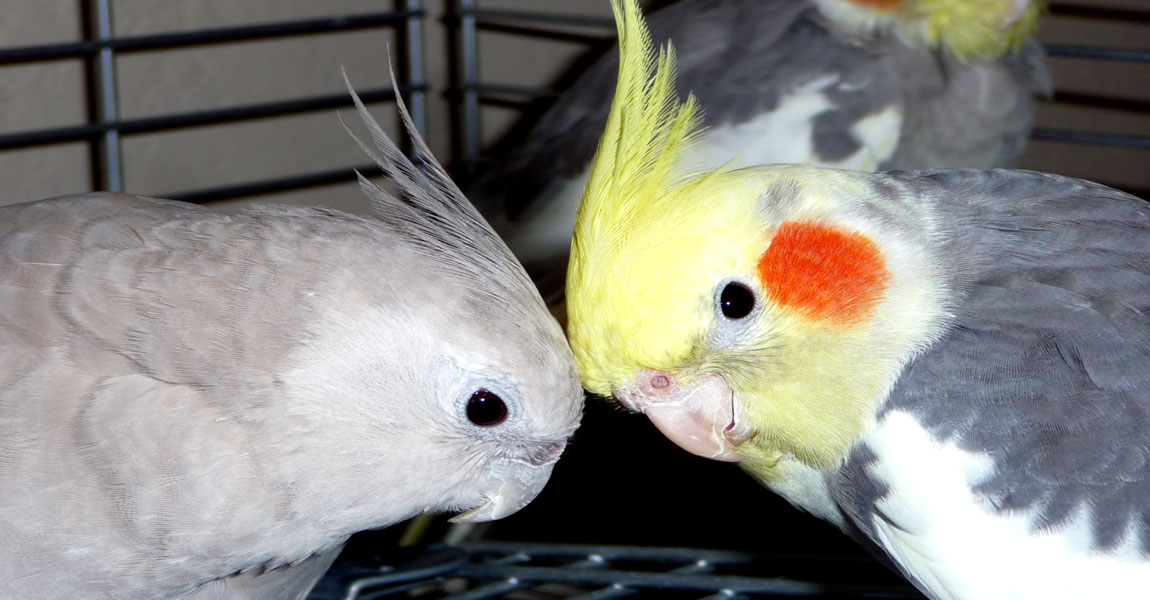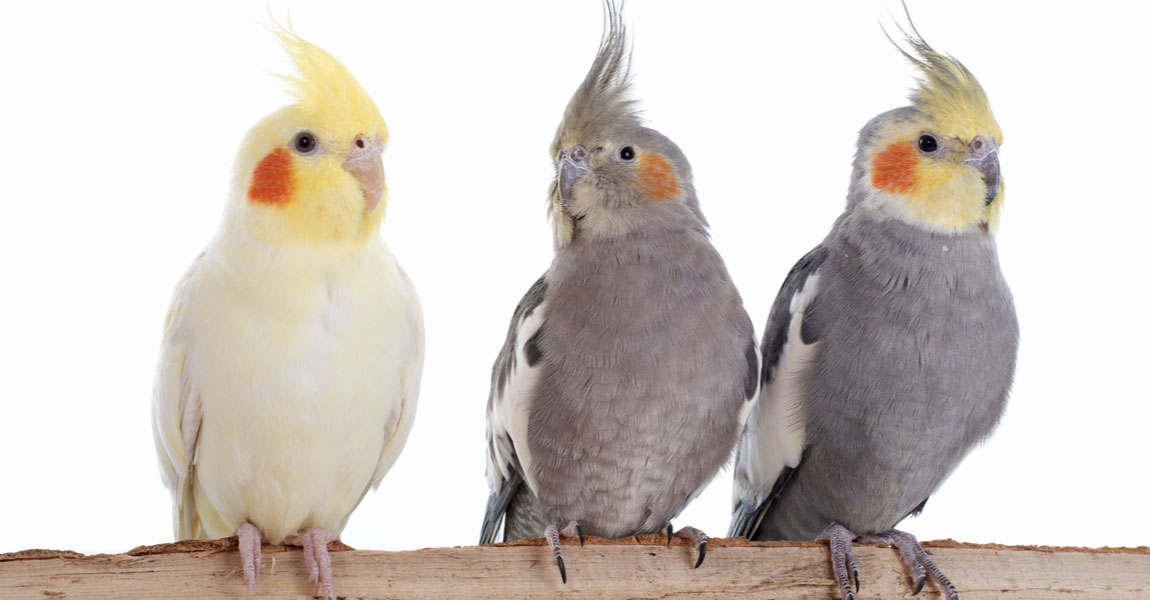Time and patience...
It's very important to understand that training a cockatiel takes time and lots of patience. The learning process for a cockatiel is not based in hours or days, but more in months. We often hear from people who ask why their cockatiel has not learn anything, as it already has been two weeks since it got home. To begin with, it takes weeks for a cockatiel just to be safe and comfortable in a new environment.
Taking care of a cockatiel starts before you choose one. Make sure before you get a cockatiel that it has been hand raised. A good rule of thumb that has always worked for us is to see if the bird will perch on your finger, if it does, then you are on your way to selecting a very friendly bird.
What to do
Again time and patience are the key here. The following are a few tips for getting the most out of your training session with your tiel:
By all means, take your time and do not surrender to pressure from a breeder or salesperson at a pet shop by telling you that "they only sell hand raised cockatiels". This is not always the case. Be patient and visit as many breeders or stores as you can, when you see a cockatiel that will climb on your finger then by all means go for it. Of course do make sure that it's healthy by checking its feather condition and to see if it has any discharge from the nostrils. Again take your time in selecting your cockatiel, they can live up to 25 years! A cockatiel is a friend for life.
Make sure your training sessions are in a quiet area, preferably near the cage, as the cage's perimeter is your cockatiel comfort zone. TV, radio and any other loud noises like the washer or dryer should be avoided during lessons. Windows should remain closed and at this time and no cooking should be happening in your kitchen.
- Keep your sessions short. Two or three 10-minute sessions every day works best to retain your cockatiel's attention.
- Find a special reward that you only give to your cockatiel during training. A food reward should be something small and easily consumed within a few seconds. Or, if your bird enjoys praise or a head scratch, offer these instead of food.
- Keep it positive and offer lots of praise if your cockatiel gets even part of the trick or training correct.
- Remember you are teaching a small bird, not a dog, an infant or a dolphin. Be patient at all times. It will take lots of time, repetition and dedication.
- Do get a book on cockatiels. Your car comes with a manual, why not get a book on your cockatiel?
- Look for patterns in screaming episodes, then look for ways to prevent the pattern from starting.
- Don't be intimidated. If your cockatiel is acting aggressively, stand nearby until it calms down. When it is calm, you can leave. Now your cockatiel knows that aggressive behavior gets it nowhere.
- Your cockatiel will learn best if you continue to reward and encourage it with each small step it takes in your training sessions.
Source: Cockatiel.com





